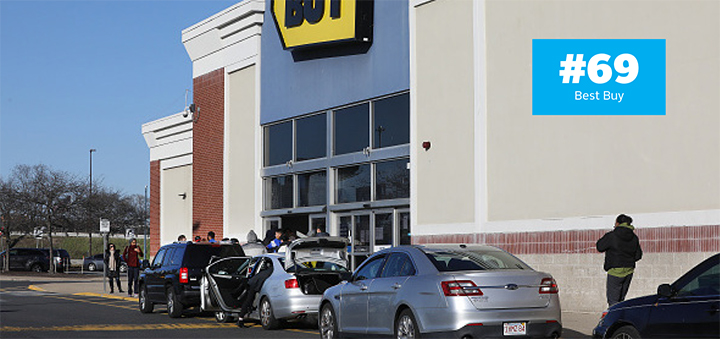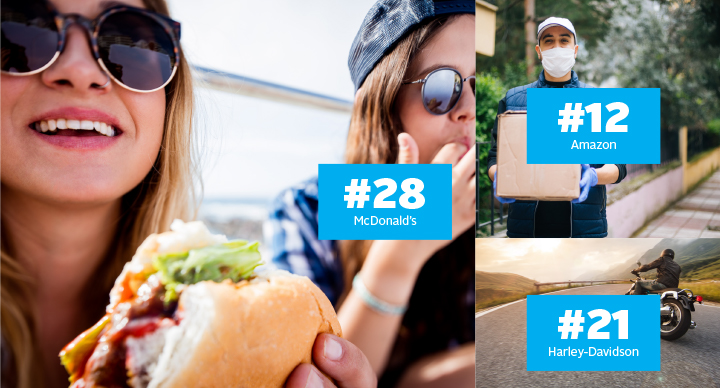The Essential Brand Rises
A TIME FOR BRAVE BRANDS
When the future offers incredible uncertainty, it offers incredible opportunity as well. Some might even say uncertainty is the foundation of opportunity. Today the opportunity for many brands begins with answering the question, what matters now? To consumers? Investors? The C-suite?
The pandemic has caused many to reset their expectations for what normal means. We haven’t yet entered “end times,” but radical societal and economic shifts are forcing consumers to reevaluate what they absolutely need. Just as businesses are rethinking operations, communications and strategy, people are asking, what core products must I have in my home? What entertainment earns a spot on my queue? What services should I spend my money on today if I might lose my job tomorrow? Consumers will gravitate toward essential brands.
What is an essential brand, and how can a brand become essential? As the crisis unfolds and life metamorphosizes through confusion, fear, optimism, determination and rebirth, clear indicators of essentialness appear.

BRANDS NEED CONSUMERS TO NEED THEM
At a basic level, essential is different than too-big-to-fail. When comparing this economic uncertainty to the 2008 financial collapse, this time around consumers and business customers alone will choose which brands survive the recession. Because even if propped up by government support or private cash infusions, some organizations may not weather temporary or prolonged disruption without significant contraction or transformation. Take the cruise industry — while Carnival (#85 on the Tenet 100 Most Powerful Brands) and Norwegian have taken on billions in debt to withstand whatever adversity a dark 2020 brings, it won’t matter if adequate numbers of travelers don’t have the confidence to set sail. No, an essential brand needs more than cash. They require one, a deep understanding of what matters emotionally and functionally to consumers and two, the ability to activate that understanding.

BRANDS IN ACTION
Essential brands create societal impact beyond their product or service, offering comfort and clarity amidst confusion, and solving critical needs. They deliver authentic and unequivocal care for their workforce, and expand sales even as sectors contract.
These actions, hallmarks of successful organizations in good times, become more important in uncertain times when many organizations wait for the future to wash over them. Essential brands mobilize quicker to outside stimuli. As uncertainty around the pandemic gained momentum, essential brands immediately assessed and adapted.
On March 21, Best Buy, a new entrant for 2020 at #69 on the Tenet 100 Most Powerful Brands, shifted to “enhanced curbside service” to protect workers and customers. For reference, only California, Illinois and New York had enacted stay-at-home orders at that point. This helped the retailer maintain 70% of its monthly retail sales YOY, though it still had to furlough 51,000 workers in April.

Microsoft, a top 10 innovator on the Tenet 100, deserves mention for continual investment in its cloud capacity before coronavirus took hold. This allowed for mostly disruption-free access to Teams, even as daily “minutes-in-meetings” tripled in March YOY. The fact that Microsoft still had capacity to offer free trials is a testament to its foresight.
What if your business model doesn’t allow planning ahead? Wendy’s promises fresh, never frozen beef. But as meat production slowed due to plant closures, Wendy’s temporarily suspended burger sales at thousands of locations. Around the same time, McDonald’s (#28 on the Tenet 100) announced it was boosting marketing spend by $100 million, no doubt enticing some of Wendy’s customers to make the switch. Two lessons: adaptability grows more important as the landscape becomes less forgiving and increased marketing spend during crises positions brands to leverage unforeseen opportunity.

Like Wendy’s, Amazon (#12) was also forced to temporarily reduce product availability as it prioritized deliveries of medical supplies and household staples. The difference between the two scenarios is that Amazon has made its service so essential over the years that it was unable to meet consumer demand — a victim of success rather than poor planning. In fact, as companies were shedding millions of jobs, Amazon, with sales up 30% in Q1, added 175,000 workers in March and April. Walmart (#54) filled more than 150,000 openings in under a month.
As essential brands rapidly adapt their “what” in the crisis, some are reevaluating their “why.” This is the highest level of adaption, to question one’s role in consumers’ lives. It is far more difficult (and risky) than donating to a worthy cause, running an empathetic TV spot or temporarily producing personal protection equipment or hand sanitizer. However, reprioritizing brand values can generate incredible new energy internally and externally, attract new buyers and create deeper loyalty among existing ones.
HOW TO MATTER MORE: INNOVATE AND ADAPT
The path to essentialness requires innovation, an attribute ranked in the annual Tenet 100 brand report. Innovation during crisis could be game-changing new products or services, rapidly developed digital-first or digital-only business models, proactive steps to safeguard the safety and confidence of your human capital, or low-tech solutions like Best Buy’s curbside pickup or Harley-Davidson’s (#21) limited-time home delivery.

Number 7 on the Most Innovative list for 2020, Walt Disney was forced to push back many movie releases. But it quickly organized to televise star-studded sing-alongs, an unexpected treat for families spending many hours together at home. Today, there’s also great value in delivering expected experiences, consistently and without compromise — no matter the state of the world. Colgate-Palmolive (#18) put flexible supply-chain contingencies into action within a day of coronavirus hitting Asia, increasing production in Latin America to back up China, Europe, and the U.S. as the crisis spread. Wall Street took notice of this agility with the corporate brand’s stock dropping only 3.5% in a two-month period when the S&P 500 fell by 18%.
Innovation can be reformulating products for longer shelf life, or adopting subscription or allocation models that assure product availability. Service providers that want to become essential will instill customer confidence by finding ways to safely perform services in their homes. Going forward, essentialness will be the mother of invention.
NEVER WASTE A GOOD CRISIS
Sometimes, opportunity arrives unannounced and vanishes unnoticed except by an observant few. Then, there are instances when opportunity arrives like a crack of lightning. This is one of those moments in which the brave will venture out into the storm, survey the damage and prepare for brighter days.
